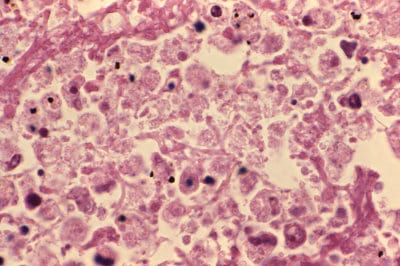 A lawsuit has been filed against a Schaumburg hotel by a former guest who claims to have contracted Legionnaires’ disease while staying there.
A lawsuit has been filed against a Schaumburg hotel by a former guest who claims to have contracted Legionnaires’ disease while staying there.
Disease Allegedly Contracted During Hotel Stay
The lawsuit was filed in the Circuit Court of Cook County on November 7, 2019. The plaintiff reported staying at the AmericInn by Wyndham Hotel between August 3 and August 5, 2019. The former guest alleges that he contracted Legionnaires’ disease after coming into contact with Legionella bacteria during his stay at the hotel, which is located at 1300 E. Higgins Rd. in Schaumburg, IL.
The lawsuit claims that hotel staff failed to properly filter the water in the hot tub and the swimming pool or maintain appropriate levels of chlorine, thereby allowing Legionella bacteria to grow. As a result, the plaintiff suffered injuries in the form of Legionnaires’ disease, for which he is seeking compensation.
The Illinois Department of Public Health (IDPH) traced two cases of Legionnaires’ disease to the AmericInn hotel after an inspection at the facility in August 2019.
Facts About Legionnaires’ Disease
The Centers for Disease Control and Prevention (CDC) first identified Legionnaires’ disease, an atypical form of pneumonia, in 1976, following an outbreak at an American Legion Convention in Philadelphia. According to the CDC, incidents of Legionnaires’ disease have risen by over 500 percent in the United States since 2001.
Legionnaires’ disease is caused by infection with Legionella pneumophila, which can be found naturally in fresh water. People exposed to Legionella may take two to ten days to show signs of infection. Early symptoms might include headaches, muscle pain, and discomfort, while later symptoms of the disease could include fever, shortness of breath, dry coughing, abdominal pain, nausea, vomiting, and diarrhea. In certain cases, Legionnaires’ disease can lead to coma or death. While anybody could be infected with Legionnaires’ disease, it typically targets people who are already in a weakened state, such as smokers, diabetics, the elderly, and those with poor immune systems or chronic lung disease.
Legionella can contaminate various water sources, including hot tubs, swimming pools, air conditioner cooling towers, water tanks, showers, and fountains. The disease spreads when people breathe in mist that contains Legionella bacteria, not typically from human to human.
Multiple Cases in Illinois
There have been multiple cases of Legionnaires’ disease in Illinois in the past year. Since late August 2019, twelve people have been diagnosed with Legionnaires’ disease at Covenant Living at the Holmstad, a senior living community in Batavia, IL. On September 12, the IDPH reported two new cases in the surrounding area, bringing the total number of Legionnaires’ disease infections in Batavia to fourteen.
Illinois health officials previously investigated possible Legionnaires’ disease outbreaks at Mercy Hospital in April and at the University of Chicago Medical Center in May. In June, the IDPH announced that three patients and one staff member at Advocate Christ Medical Center in Oak Lawn had tested positive for Legionnaires’ disease since 2018. In July, the IDPH announced that it was investigating two cases of Legionnaires’ disease in recent patients at Rush Oak Park Hospital.
Contact a Chicago Personal Injury Lawyer About Legionnaires’ Disease
If you or a loved one has contracted Legionnaires’ disease while staying at a hotel or some other facility, contact GWC Injury Lawyers to schedule a free, no-obligation case evaluation with our Chicago personal injury attorneys.
With over $2 billion recovered in more than four decades in practice, GWC is one of the leading Personal Injury and Workers’ Compensation law firms in Illinois. GWC has the experience, the resources, and the reputation of success you need to help you and your family get the justice you deserve.
For a no-cost consultation, you may call our office at (312) 464-1234 or click here to chat with a representative at any time.
<< BACK TO BLOG POSTS